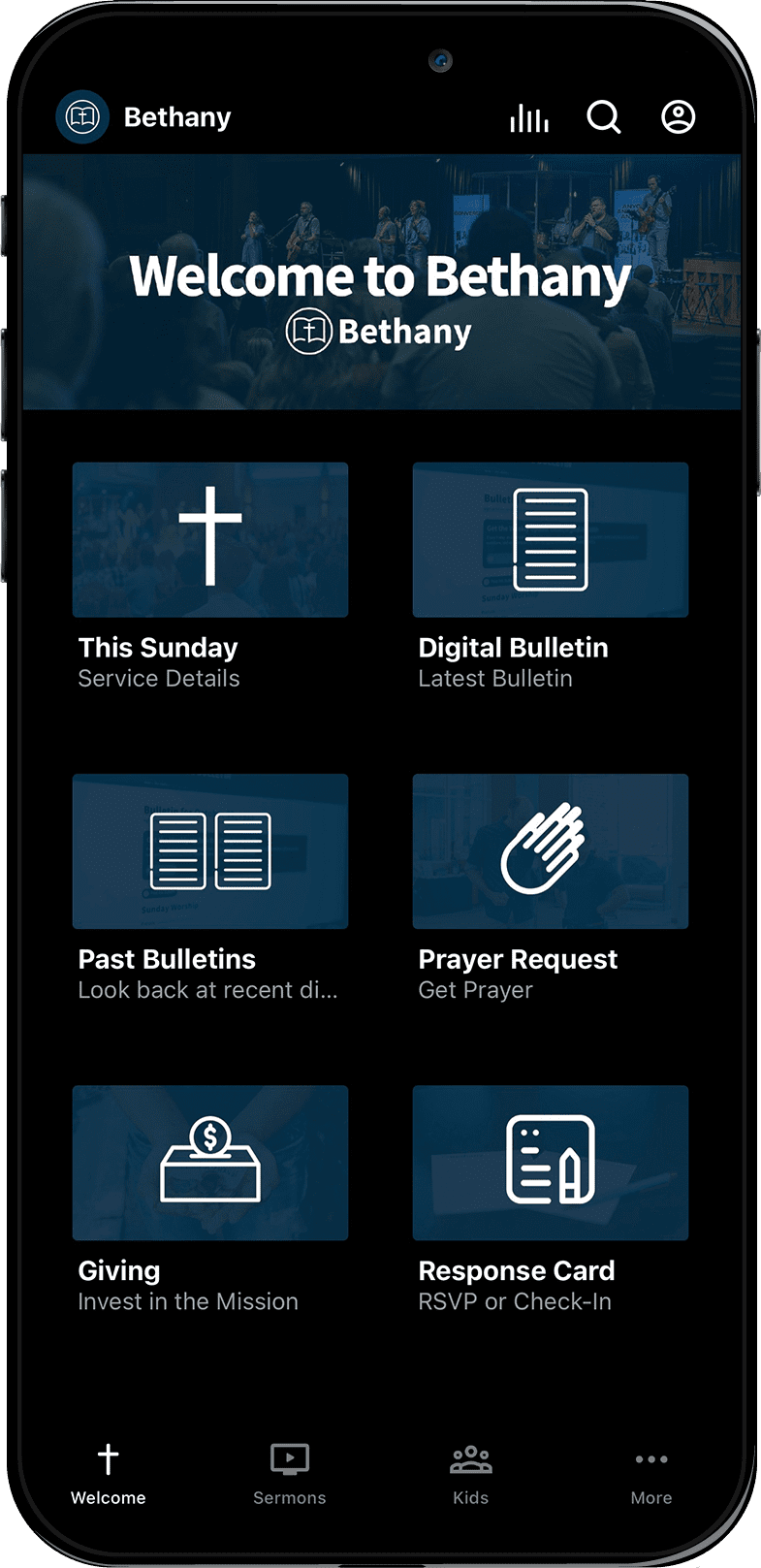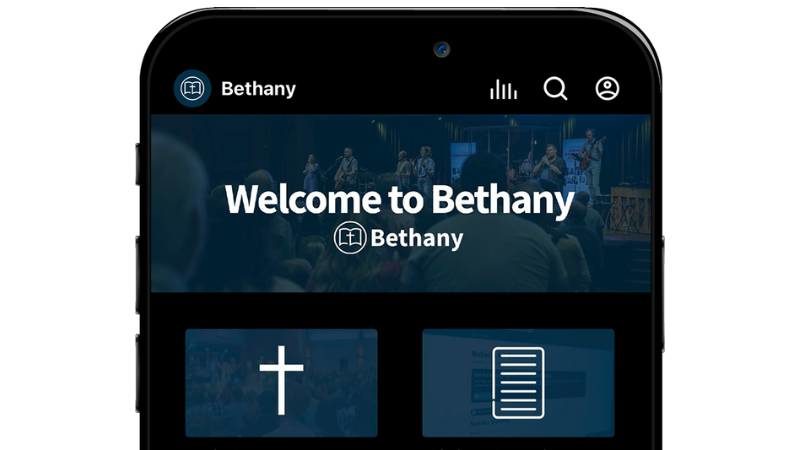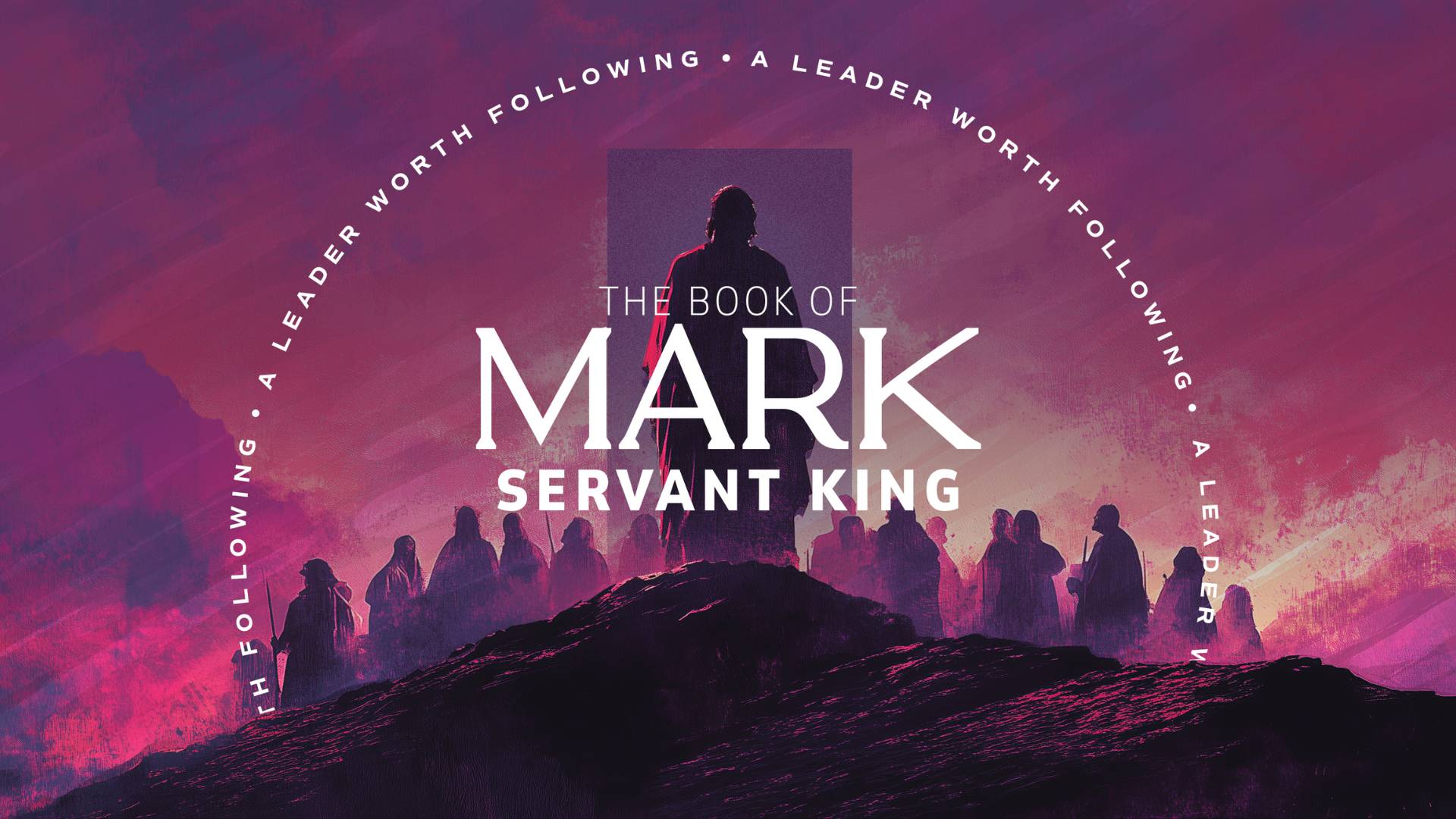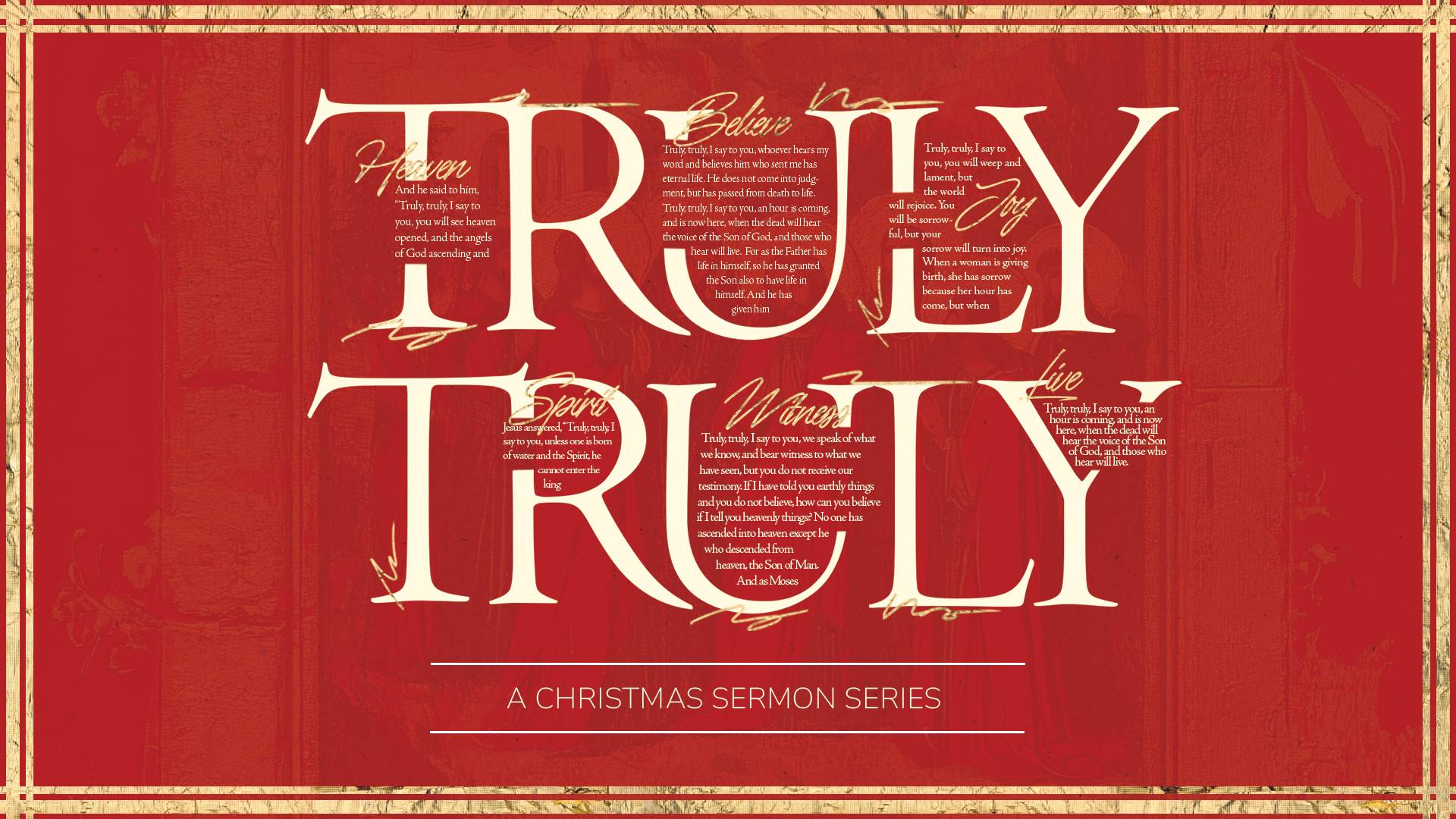In This Series
National Treasure
Ezra 1:1-11 (ESV)
May 29, 2022
Pastor Josh Beakley
We’re starting a new series in the book of Ezra. We’re in the Old Testament. Recently we went through the book of Zechariah. If you remember that, some of the context there will help you. It’s worth taking a look if you have a Study Bible and just reading that page beforehand. Probably next week we’ll do a little bit more detail on the history. But just to give you a sense, we’re before the time of Jesus, where the nation of Israel has been disobeying God and are exiled. This is real life history. They had been exiled and deported across the land to the kingdom of Babylon. Now we’re observing what God is doing in keeping His promises and bringing them back to the land of Israel. It starts with this amazing occurrence here in Ezra chapter 1.
1 In the first year of Cyrus king of Persia, that the word of the LORD by the mouth of Jeremiah might be fulfilled, the LORD stirred up the spirit of Cyrus king of Persia, so that he made a proclamation throughout all his kingdom and also put it in writing:
2 “Thus says Cyrus king of Persia: The LORD, the God of heaven, has given me all the kingdoms of the earth, and he has charged me to build him a house at Jerusalem, which is in Judah. 3 Whoever is among you of all his people, may his God be with him, and let him go up to Jerusalem, which is in Judah, and rebuild the house of the LORD, the God of Israel—he is the God who is in Jerusalem. 4 And let each survivor, in whatever place he sojourns, be assisted by the men of his place with silver and gold, with goods and with beasts, besides freewill offerings for the house of God that is in Jerusalem.”
5 Then rose up the heads of the fathers’ houses of Judah and Benjamin, and the priests and the Levites, everyone whose spirit God had stirred to go up to rebuild the house of the LORD that is in Jerusalem. 6 And all who were about them aided them with vessels of silver, with gold, with goods, with beasts, and with costly wares, besides all that was freely offered. 7 Cyrus the king also brought out the vessels of the house of the LORD that Nebuchadnezzar had carried away from Jerusalem and placed in the house of his gods. 8 Cyrus king of Persia brought these out in the charge of Mithredath the treasurer, who counted them out to Sheshbazzar the prince of Judah. 9 And this was the number of them: 30 basins of gold, 1,000 basins of silver, 29 censers, 10 30 bowls of gold, 410 bowls of silver, and 1,000 other vessels; 11 all the vessels of gold and of silver were 5,400. All these did Sheshbazzar bring up, when the exiles were brought up from Babylonia to Jerusalem.
Sometimes simple objects hold precious meaning for reasons other than we might initially think. About a decade ago, some suspicious art transactions by a nearly anonymous person in Germany eventually led to a house search warrant and then the discovery of a treasure trove of art that had been stolen decades before from the Jews during Word War 2. In this unassuming 1,076 square foot apartment, they found 121 framed and 1,285 unframed art works including pieces by Picasso, Métis, Renoir, Lieberman, and over a dozen others. It’s a collection that could be worth more than a billion dollars. How did they get there?
Well, this man had kept these works, most of which had been acquired by his family, many deceitfully at bargain prices from Jewish families under duress in the war. His father had been a museum curator and despite being a quarter Jewish, according to the law at the time, he had become an approved art dealer. So in that role, he had a complicated and dangerous game of survival and self-enrichment. One article says he played everybody; his wife, the Nazis, the Allies, the Jewish artists, dealers and owners of the paintings. It led to amassing this great treasure of works until they came to be stored in this apartment, where they had lived with this man for decades and he had not told anyone.
The authorities had kept this discovery quiet for almost two years until a magazine had splashed on its front page this news that the treasure trove of art that had been stolen seventy years previously had been found. The day the story came out the chief prosecutor had to have a hasty press conference and had a carefully-worded press release. But then that was followed by another and then the floodgates of outrage were opened. The chancellor of the nation’s office was inundated with complaints and there was an international image crisis on this country’s hands. The government actually started to put some of these works up on a website and there were so many visits that it crashed.
The question on the mind of many was stated by one article like this. “How outrageous is it that seventy years after the war, Germany still has no restitution law for art that was stolen?” Seventy years later, this room filled with paintings had aroused political unrest and social outrage among the globe. It was not just because of monetary value, but because of what these items meant to the people and the nation to whom they once belonged. This was a people whose treasures and financial securities had been taken from them. But this wasn’t the first time that the nation of Israel had faced such a devastating loss of simple objects that held not only monetary value, but a meaning far deeper than what we might initially think. Nor was it the first time that a powerful secular nation found their attention and identity unexpectedly wrapped up in the concerns of this particular group of people.
It’s events like this that help us begin to understand what might have been going on in Ezra chapter 1. Israel had been exiled. In three waves, the people had been deported across the pagan map, many to Babylon. It had been seventy years. Multiple generations had come and many had gone. New homes were built in foreign lands. The old stories of their heritage felt further and further away. Many families had grown quite comfortable with the decadent culture of Babylon and the prosperous Persian kingdom. It was throughout this time that the Jews, like Daniel and Ezekiel and then later Haggai and Zechariah lived and wrote to their people encouraging them to remember where home truly was and the God to whom they ultimately belonged. They encouraged them through the promises that they had received that they would one day return, and to continue in what God had promised.
Now, Ezra and Nehemiah were likely one book written together. We’re going to focus our time on Ezra. While we aren’t specifically told who the writer is, the writing switches from the third person to the first person halfway through when Ezra appears. It’s most likely that it was him. His name, Ezra, means “Yahweh helps.” He is a priestly descendant from the line of Aaron. We can see clearly he loved God. He loved His Word. He loved God’s holiness and he was grieved over sin and over his people’s brokenness and exile because of their rebellion. He was a priest without a place to serve. He had the instructions, but not the temple. So he was also more than a priest. He was a scribe. He was someone who would have had rare and special access into plenty of administrative documents. So he had access to edicts and letters, correspondences, inventories, lists, genealogies. He had the official Excel documents, the royal archives of the Persian Empire. Because of that access and because of his inclination, he was uniquely positioned to put together a work like this and possibly the book of Chronicles as well.
In fact, the book of Chronicles ends with the same letter or announcement quoted at the beginning of Ezra. You can see it one page before. It’s why the compilers put these books together to show you. It’s almost like a movie franchise where one movie ends and the director tips his hat back to that film with an opening montage connecting the two. You look at Ezra chapter 1 and the end of 2 Chronicles and you can see the bridge that both of these books work together to provide hope to a people in exile, that they could return. Chronicles talks about the hope of this Davidic line and the promise that it would continue. Then Ezra and Nehemiah talk about the hope that there would be a rebuilding of the temple, of the people, of the wall to protect them. These things, these promises of God had not been forgotten. God would return and He called His people to do so.
As you read this book, it’s almost like a replay of the first exodus. It’s almost as if Israel is getting a second chance. I mean, Israel had been rescued. You remember this nation chosen of Abraham, Isaac and Jacob. Then Jacob was renamed to Israel. His twelve sons become twelve tribes in Egypt and there, they are forced to serve as slaves. God rescues them with a mighty hand out of the kingdom of Pharaoh and then they go and conquer the land. They live in the land and God gives them His law. He promises to protect if they obey. But if they rebel, He promises that they would be exiled. The kings come and they descend into rebellion. God promised to maintain a line, a throne through David. Yet the kings rebel and the nation is exiled. Here, there is this moment as if it’s a second exodus, where they are able to return to the land. Maybe things will be different this time. It’s almost like there is a second move of the nation. There is going to be enemy opposition in the land. There is going to be temptation to intermarry and toward idolatry, just like there was before. There are going to be good moments of victory in this book.
There are really three movements in Ezra and Nehemiah. The first movement, Ezra chapters 1-6, is through Zerubbabel bringing back the temple. The second movement, Ezra chapters 7-10, is Ezra going to restore the people. Then the book of Nehemiah is Nehemiah going and restoring the wall. For those of you going to summer camp and reading about the book of Esther, that kind of falls probably right between chapters 6 and 7. This is the time where God’s name is not mentioned in a foreign land. His name is nowhere, yet His fingerprints are everywhere. There are going to be good moments throughout these books, but in each of these returns, there is sort of an end of mixed emotion and the anticipation. Sometimes even a little bit of disappointment leaves the people wondering what comes next. Ezra is encouraging the people to have hope and look forward, to trust God and take hard steps in trusting God and trusting His promises.
It’s not something that should fall on deaf ears for us. It’s not something that we’re beyond. We need hope to trust God in hard times, to grab hold of His promises, to have hope that we can trust Him as the promise-keeping God. The people would have been asking, is it worth it? Is it really worth it to trust God? Rather than all the other earthly securities and treasures and comforts that we could have, is it worth the risk of fanning the spark of revival into a flame? This is going to be costly. You don’t know where it will lead. If you respond to the prompting of God’s Spirit speaking to you and convicting you from His Word and you actually decide “I’m going to take a step, a hard step in following God and fanning this spark and seeing where this flame of revival might lead.” You don’t know what it will cost you after drifting so far in your life. Wherever that area might be where you feel far from where you once had been, to take a step in following Him by faith will be hard.
Where are you at this morning? What might God be speaking to you about through His Word? What conviction might His Holy Spirit be bringing upon your heart? Where are you tempted to place your hope, your security in something of this earth and God is calling you to trust in Him and His promises? Is it worth the risk? We talk about wanting revival at church, but people forget how difficult, how costly, how painful true revival actually is. Revival is costly. Usually it involves tears and tough times. We’re talking about going back to God. We’re talking about repentance. It’s hard.
It could be a letter that you need to write or a call that you need to make, a family member that you need to visit, a trust that you need to build, a season that you need to endure. Maybe it’s a child returning home or a spouse returning to the other or forgiveness you need to grant or a pleasure that you need to deny or a priority you need to reset, a relationship you need to surrender, a job you need to change. These are hard steps in following God. Revival hurts. It’s like a limb that has fallen asleep and as it starts to come back awake, there is a pain, and yet that pain is necessary. In the end, it brings about a good result. There is hope.
Revival is always worth it. There is always hope. God brings great blessing upon those who return to Him in repentance. He is a God worth trusting. He is a God who promises to heal, to forgive, to restore, to bring home those who would return to Him. You can trust Him and it’s totally worth it. It’s always worth returning to God’s sure promises. He keeps every one every time. There is no greater treasure than that. You can trust God to be the promise-keeping God. That is the ultimate security in this life and the next. There is nothing greater than that we have a promise-keeping God.
So as you and maybe the people of Israel would wonder, as far as you or they have drifted and what it might cost, what it might cost them to have to risk to follow God, is it worth it? What are the reasons that we can cling to that remind us it’s worth it? Here are a few this morning. I’ll try to work through five reasons to take hard steps to trust God. The first is this.
1. God follows through.
Why take hard steps to trust Him? He follows through. You can see that in the very specific prophecies that He keeps. It shows that He follows through faithfully in impossibly specific ways. This prophecy is a prediction that something will happen. We look at these prophecies that God makes and He keeps them and He follows through in ways that are undeniable.
If you’ve lived long enough, you’ve been around to witness a number of political campaigns and then elections and then inaugurations, administrations and transitions whereby you learn that campaign promises are not always kept. When it comes to human guarantees there is often a strong lack of follow through. That’s why so many promises are very vague. It’s the same with fortune-tellers or mediums, where psychics will keep their predictions vague and they can’t be scrutinized or falsified. That’s what makes the true prophecy from the real God so awesome! He is not afraid to make impossibly specific prophecies to prove He is always faithful to follow through.
You can look at these prophecies. It’s mentioned right off the bat in verse 1 to try to get your attention. The verse sets the stage for this book and gives us a lens through which to look. In verse 1 we’re told when this is, where it is, who is in charge, and then why it all happens. First, look at where this is. This is a written word about the people of Israel and their God, Yahweh, but we find ourselves in Persia. They’re in exile. Why would God’s people be in exile? It’s because God keeps His promises. They are there because He keeps His promises. He had prophesied and promised that if they didn’t obey, if they rebel against Him, they will end up in exile. So here they are. They had been rescued from Egypt and they thought they were unconquerable, yet they had rebelled against God. If you read the last chapter of 2 Chronicles, chapter 36, you can look back and you can see what they had done. Just turn a page back.
2 Chronicles 36:15-16 The LORD, the God of their fathers, sent persistently to them by his messengers, because he had compassion on his people and on his dwelling place. But they kept mocking the messengers of God, despising his words and scoffing at his prophets, until the wrath of the LORD rose against his people, until there was no remedy.
He brought calamity against them by the king of the Chaldeans, killed their young men.
2 Chronicles 36:18-19 And all the vessels of the house of God, great and small, and the treasures of the house of the LORD, and the treasures of the king and of his princes, all these he brought to Babylon. And they burned the house of God and broke down the wall of Jerusalem and burned all its palaces with fire and destroyed all its precious vessels.
All of this happened, he says
2 Chronicles 36:21 to fulfill the word of the LORD by the mouth of Jeremiah,
Jeremiah in that time had been prophesying. They had mocked him, but he had said “If you do not turn, God is going to send you into exile. Babylon will come.” They said “No way!” But God kept His promise and the people were exiled. So they’re in Persia. That’s where this is. You also see when this is.
1 In the first year of Cyrus king of Persia,
It’s a big moment, a big atmosphere for any nation, especially in the realm of Persia. But this isn’t Cyrus’ first year on the throne over all. It’s his first year over this new realm. He had conquered Babylon and this is his first year of reign there. So when you actually look back at history and then look at what is told about Cyrus to us, he is the king of Persia, but this is a very unique ruler because Cyrus was actually prophesied about before he was born. In the book of Isaiah, there was another prophet who made a very specific prophecy. In Isaiah chapter 44, God speaks about this one who no one knew what He was talking about, one named Cyrus.
Isaiah 44:28 who says of Cyrus, ‘He is my shepherd, and he shall fulfill all my purpose’;
Isaiah 45:1 Thus says the LORD to his anointed, to Cyrus, whose right hand I have grasped, to subdue nations before him and to loose the belts of kings, to open doors before him that gates may not be closed:
God is going to work through Cyrus.
Isaiah 45:3-4 I will give you the treasures of darkness and the hoards in secret places, that you may know that it is I, the LORD, the God of Israel, who call you by your name. For the sake of my servant Jacob, and Israel my chosen, I call you by your name, I name you, though you do not know me.
God spoke and prophesied that one day Cyrus would come and conquer. It’s an incredibly specific prophecy. But that isn’t even the one that the author here in Ezra is referring to. He is talking about the prophet Jeremiah. You see, he cites another prophecy that is so specific, not just through whom all this will happen, and we know it to be Cyrus, but why all this is going on in the first place. The author says this is the reason why this happens.
that the word of the LORD by the mouth of Jeremiah might be fulfilled,
Jeremiah is sometimes called that weeping prophet who had said that exile was coming.
Jeremiah 25:11-12 This whole land shall become a ruin and a waste, and these nations shall serve the king of Babylon seventy years. Then after seventy years are completed, I will punish the king of Babylon and that nation, the land of the Chaldeans, for their iniquity, declares the LORD, making the land an everlasting waste.
Babylon would be punished after seventy years. In fact, that’s what Jeremiah had prophesied and here it comes to pass. This is the first year where Cyrus conquers and Babylon suffers. Jeremiah’s calculations are proving true. Cyrus has conquered and the pieces of the puzzle are starting to fit together. It’s very possible that Daniel had calculated these seventy years. He knew that this number was approaching. He had read the prophecy of Isaiah and now all of a sudden, he hears of this man named Cyrus and this new time that is coming. Here, Cyrus takes control of Babylon right near seventy years. That’s what the chronicler knew, who very possibly was Ezra. That’s why at the end, he cites this specific prophecy of seventy years before he says the words that are repeated also in Ezra chapter 1. The promise made by Jeremiah was the promise of God. In fact, this is the context of that oh so famous verse that we’re given. In Jeremiah 29, if you read the verse before the famous verse it says
Jeremiah 29:10-11 “For thus says the LORD: When seventy years are completed for Babylon, I will visit you, and I will fulfill to you my promise and bring you back to this place. For I know the plans I have for you, declares the LORD, plans for welfare and not for evil, to give you a future and a hope.
You see a very specific promise and the whole point is that God follows through. You can take hard steps to follow Him because the ultimate security is a promise-keeping God who faithfully follows through on even very specific prophecies. He followed through on His promises to His people. To Noah, He followed through on the promise not to flood the earth. He followed through on His promise to Abraham of a child and descendents and a land. He followed through on His promise to David of a kingdom and a throne. He followed through on His promise to those in judgment and exile. A rebellious nation was sent out in exile, but then there was a promise of return seventy years later. He keeps His promises and follows through.
Ultimately, He kept His promise to Adam and Eve and to mankind that a Seed, a child would be born to conquer the serpent and deliver all who trust in Him by faith. The coming of Jesus Christ, His perfect life and ultimate sacrifice was a fulfillment of hundreds of specific prophecies that couldn’t have been fulfilled before and never could be fulfilled again. You see, there is only one who could fulfill the prophecies of the ancient book. There is no other ancient book. This is the ancient book. None other remains. This is it! This is the book. This is the one. He died to pay for the sins of all who trust in Him. He is the same suffering servant prophesied by the same Isaiah who knew the coming of Cyrus. He rose from the dead, conquered sin and death, and one day will return to all who trust in Him and rescue them. You can count on it! God follows through.
What promises are you tempted to doubt or to forget whether God will really follow through? When you’re caught in a specific sin, whatever God brings it to mind and you say, “I don’t really know if a consequence is going to come from this. Is God really just? Will He really send discipline? Is He really faithful to reward those who follow Him? Is it really worth trusting Him?” Or maybe you’re just in chronic suffering or oppression. You’re just wondering, “Will God really bring comfort? Will He really deliver?” God follows through. I’m thankful that this church family so trusts God’s Word and is committed to an understanding of His prophecies and wants to trust Him to follow through. May we continue to do so, to trust Him to follow through in this world of chaos, of turmoil, of ideological movements, of political unrest. Whatever it is, we wonder how is He able to do that? How does He make such specific prophecies come to pass? Well, the second reason you can takes steps to trust God is because
2. God is in charge.
Not only does God follow through, but He is in charge. That’s how He is able to follow through. We turn from the prophecies God keeps to the power He possesses. It’s sovereign power. Ultimately, He is in charge no matter who is on a throne. You can see God’s power work in verse 1.
the LORD stirred up the spirit of Cyrus king of Persia,
He is the one who has this king come and conquer this land and He stirs him up. How exactly does He do this? We know that
Proverbs 21:1 The king’s heart is a stream of water in the hand of the LORD; he turns it wherever he will.
But what took place. Well, here is maybe an idea. Daniel was there in Babylon. Even as he entered and as Cyrus conquered, here is one of those assistants there. He is able to point out, “You’re supposed to be here. God knew you were going to come. God secured this victory for you.” Daniel would have known from Jeremiah 51, verses 1 and 11, that Yahweh is the one who was going to stir this up. There are all the passages in Isaiah about how Yahweh stirs up Cyrus. Daniel would have been able to calculate. In Daniel chapter 9, you can see him understanding the times, then to be able to say this is a work of God. Cyrus, looking to secure peace in his kingdom and to gain appreciation from His subjects, it’s not a hard thing to see how he might have been inclined to win some favor and to try to show his benevolence. So God’s power is at work supernaturally suring up Cyrus.
so that he made a proclamation throughout all his kingdom and also put it in writing:
It would have been a big deal. It wasn’t an easy thing. They would put it in writing all throughout the land in an edict. God is at work formally and wondrously through what Cyrus acknowledges.
2 “Thus says Cyrus king of Persia: The LORD, the God of heaven, has given me all the kingdoms of the earth, and he has charged me to build him a house at Jerusalem, which is in Judah.
We see who he addresses. He speaks to these people and he encourages them that they would have blessing and go to Jerusalem.
3 Whoever is among you of all his people, may his God be with him, and let him go up to Jerusalem, which is in Judah, and rebuild the house of the LORD, the God of Israel—he is the God who is in Jerusalem.
It’s almost as if Cyrus has received some coaching on what God had promised and he likes it. So he blesses the people to go back and to follow through on God’s promise. He says
4 And let each survivor, in whatever place he sojourns, be assisted by the men of his place with silver and gold, with goods and with beasts, besides freewill offerings for the house of God that is in Jerusalem.”
So he has a policy where they’re going to be provided for. It seems like a tax law. He encourages people to give to this work. They’re going to need it. “All these people have settled here in Babylon and we’re asking them to resettle.” It’s not a command. It’s a freedom that they can choose. They can choose above and beyond what Cyrus offers. Others are to give. What would cause that to happen? It’s so shocking! God caused it to happen. Ezra points it out to remind us that God follows through and God is in charge. You can take hard steps to follow Him because He is a God who is in charge and ultimately rules no matter who is on the earthly throne.
He is sovereign over kings and rulers. He has proved that time and again. He is sovereign over the whole mankind striving in Babel. He is sovereign over Pharaoh and his mighty dynasty. He is sovereign over the nations of Canaan, over the enemies of Israel. He is sovereign over Nebuchadnezzar of Babylon, over Cyrus and all Persia. He will be sovereign over Greece and over Rome and the ways that would bring about a fullness of time. All of this would set in motion the fulfillment of other prophecies so specific and sovereign where Jesus would come and transform all of human history. God is in charge. He is sovereign over history, sovereign over America, sovereign over Russia or China or Ukraine or Taiwan or any other country that surfaces on the news. He is sovereign over Peoria. He is sovereign over whatever business or place of work. He is sovereign over the state. He is sovereign over this very church. He is sovereign over your very home. God is in charge.
A while ago, I was connecting with a judge in a nearby area. As we interacted, I thanked him for his role. In his response, he said, “The Lord has been with me throughout my judicial career. You wouldn’t believe the amount of times I’ve been in the midst of speaking and my words change almost at the very moment I speak them. I believe this is from the Holy Spirit.” That’s one of our judges. What a statement of trust and the realization that God is ultimately the one in power and in charge. Do you believe that? Do you believe that God is in charge of your parents? Do you believe that God is in charge of your coach, of your church leaders, of your judges, your governors, your presidents, the foreign nations, of whatever organization? Do you believe that God is in charge of anything that you might imagine? He is even in charge of Satan. God is in charge.
I’m blessed and I say thank you for being a church that doesn’t panic and remembers that God is in charge. We haven’t succumbed to fear or striving. We’ve wrestled with this, to be sure. There are temptations and even failure at times, but in the end, we’re a body committed to remember that God is in charge. We need to remind each other of that. But there is also a clarification here. There is a clarification that we’re not just to be lazy and passive and sit back because
3. God moves people.
You can take hard steps to trust God because God moves people to support the actions He intends. You can see here the Spirit-filled people He uses. In verse 5 you see the people who rise up that God had stirred up to rebuild the house of the Lord.
5 Then rose up the heads of the fathers’ houses of Judah and Benjamin,
We see key leaders from the heads of their father’s households. These families from notable tribes of Judah and Benjamin would have been of the southern tribes where David’s throne would be, where God’s promises needed to be fulfilled. The other ten tribes we see in absence. Not everybody was ready to take some of those steps of discomfort to trust God. But here He brings what is needed. We see not only those people, but also
and the priests and the Levites,
These are necessary figures to reinstitute temple worship. Then there was also
everyone whose spirit God had stirred to go up to rebuild the house of the LORD that is in Jerusalem.
These are people that God had brought and moved to a clear purpose to rebuild the house of the Lord in a set place, that is, in Jerusalem. God is the cause. He is the cause for moving these people and getting them going. You can take hard steps to trust God because He is the one who moves people to accomplish what He desires. He strategically moves people by His Spirit to lead, to build, to serve, to give, to go. He stirred the leaders of Israel. He gave the craftsmen to build. People had given. He gave the warriors to fight. He stirred up people to repent and follow His Word. He stirred up people to be sent out from His churches. He stirs people up and moves people because God is a God who works through His Spirit. Even now, God works and stirs in the heart of His people by His Spirit.
I know that He has worked and stirred up some of you by working and using your gifts, giving you ideas and passions and desires and a readiness to go. We’ve sent out some from our midst. He also stirs up people to give so they can contribute and make that possible. So God raises up people. He moves them to serve in things like VBS or like Summer Camp or assisting in Counseling or caring for a widow in the community or welcoming a child without parents. It’s a special thing in one sense, but it’s also very simple. It’s just us. It’s just normal people. It’s just normal us. We are people moved by God. That reminds us why we need the provision of God. It’s just simple us. God works through His people and He also provides.
4. God gives us all we need.
This is the sufficient provision He supplies. You can see that in verse 6.
6 And all who were about them aided them with vessels of silver, with gold, with goods, with beasts, and with costly wares, besides all that was freely offered.
They provided everything that was needed to support these people on this long journey home. God provides sufficiently all we need. You can take a hard step to trust God because He will provide what is needed. He will give what is needed to accomplish what He is calling you to do. This would remind you of the exodus out of Egypt and how they had received all of those treasures that would help them along their way. God supplied their daily needs through manna and through water. He worked through people to supply what was needed to accomplish the work of building the tabernacle or the temple or caring for those in need. You see later in the New Testament that God provides. He sends. When Jesus came, He had to teach His followers over and over. He did a miracle with fish and loaves not just once but twice, because we tend to panic. We tend to doubt whether God will provide. Yet God has proven so clearly through Jesus.
Romans 8:32 He who did not spare his own Son but gave him up for us all,
Jesus died on the cross for our sins. If that’s true, then
Romans 8:32 …how will he not also with him graciously give us all things?
Whatever that hard step of trusting God that you’re considering, you can take that because God will provide what you need. You see His sufficient provision here. I’ve seen God provide so often. As a missionary, you get to see that on the frontlines over and over. But it’s especially a joy in being on the side of giving rather than just receiving. I’m not talking about just giving monetarily, but emotionally, through notes or spiritually, through prayers and Scripture, materially, through physical support or home repairs. God loves to see His people experience the gift of both giving and receiving. I don’t know if you’ve ever been prompted to send a text or an email or write a note. Or you get awakened in the middle of the night thinking, “I think I need to pray for somebody.” Or you get a bonus and God brings something to mind and then you can bless. I know you do. I’ve seen it so often. Praise God! It’s such a joy to see the worship of God through His generous giving and provision that often happens through His people. But even when we do take those hard steps of trusting Him to provide all we need, let’s not forget this last reason. A very basic reason to trust God with hard things is because He cares.
5. God cares.
He cares about the tiniest of details. Here, we’re just looking at the simple pictures that He gives to show that He cares.
When Janea and I were getting ready to move from Los Angeles to Peoria to come to Bethany, one of the decisions we had to make is which car we would bring. We both had a car. I had a Honda Civic and she had this well-maintained SUV. It was a tough call, but we prayed and we thought maybe we’ll just make the decision to bring the Civic out. So we tried to sell it, but we couldn’t sell it. It was hard. Eventually we said we were going to go to this business and we will evaluate based on whatever price they give to us. We prayed and we kind of picked a number. We said if it’s above this number, we’ll take it. If it’s not, we’ll rethink. The guy put the data in the computer for the value of the car and printed out the exact number we had said.
Now what do I say about that? That was just a situation that happened. But what happened? We were reminded that God cares. It was as if God knew what we needed just to push us over that hump. It was a tiny detail, but it was a detail that reminded us God cares. He was with us. He knows we need those kinds of reminders sometimes. When His people respond in faith, they are ready to go in this chapter. Then you see they are ready to give and support this movement. God restores some of the precious instruments from the house that had been taken.
7 Cyrus the king also brought out the vessels of the house of the LORD that Nebuchadnezzar had carried away from Jerusalem and placed in the house of his gods.
He meant business, for real. He brought out those things from when the nation had been conquered. Sort of to their shame, they had taken all the vessels out of the house of Yahweh and stuffed them beneath his own gods that Nebuchadnezzar had. Now Cyrus brings it back.
8 Cyrus king of Persia brought these out in the charge of Mithredath the treasurer, who counted them out to Sheshbazzar the prince of Judah.
Ezra takes account of this and you see the numbering there.
9 And this was the number of them: 30 basins of gold, 1,000 basins of silver, 29 censers, 10 30 bowls of gold, 410 bowls of silver, and 1,000 other vessels; 11 all the vessels of gold and of silver were 5,400. All these did Sheshbazzar bring up, when the exiles were brought up from Babylonia to Jerusalem.
God shows in this very precious way that He cares. It’s in a very precious, small, detailed way. He cares and He is providing for this return trip. It’s a trip that would have been hard. This whole mission would have been uncomfortable. There is going to be a lot of opposition. We’re going to hear about it in the weeks to come. It was a hard step and a difficult journey to trust God by faith. Yet they knew the spark that God is lighting, we’re going to fan it. We’re going to let it happen. No matter where it’s going to take us, it’s worth it because God cares. We can trust Him to keep His promises because He cares. He cares about the tiniest personal details. You see that throughout all of Scripture. From the trees under which Jacob slept and worshiped, to the cloaks that were torn from Joseph’s body, to the pledged staff that Judah had made and then promised to give by his father, you see the fleece of Gideon and the silent prayer of Hannah. Whatever it is, God was at work in the personal moments. From Jesus’ death on the cross to His rise in appearance to Thomas, it is so personal the way that God works.
Even in our own lives, there is the provision even of His conviction of my sin. There is His provision of our children in our home and the little stuffies that they hold in their bed. God cares. Jesus cares not merely for the world, but for you. Have you experienced that personal care and love? Have you experienced the comfort, the peace, the provision of His death on the cross and His Spirit that would rescue you from your sin? God cares.
Years ago, I remember when we first started coming to church. My dad was asking Pastor Ritch what we should pray about. He said, “We should only pray about the big things, right? We should pray about the big things like church and missions and stuff. Not the little things like parking spaces, right?” I remember Pastor Ritch asked my dad, “What’s a big thing to God?” God cares about the vessels and the bowls. He knows what they need. He understands because He cares about us.
Just this past week, we lost this dear man who has been a member at Bethany for seventy years. Baxter was 100 when he went home to be with the Lord. But before he did, his family discovered this organization that helped honor Word War 2 veterans and they were able to come and hold this ceremony that was so special just a few months ago. We had a US General in our gym saluting Baxter, kneeling to shake hands with and honor him. It was a moment that you could have just missed, but it was a huge moment for Baxter, for his family, for his friends. God knew what was needed to show He cared.
That’s not to say that God always shows His care through making things easy. Sometimes He shows His care through things being hard. He shows His care through waiting until they’re just out of reach. One of the most profound stories of care is of Jesus. Even though He could have healed Lazarus, He waited until Lazarus died. In going to Mary and Martha to show He cared, we have the shortest verse, which is just two words. Jesus wept. In both situations, God shows He cares. Times like the tragedy in Texas may be times where these words are very difficult to trust, but they are also very, very critical. God cares. You can take hard steps to follow Him because He follows through and He’s in charge. He moves His people. He gives us all we need and He cares. There is no security more ultimate in this world than this promise-keeping God.
We were getting ready to move in the winter of 1999. There had been this major revival and radical repentance in my parents. Both dad and mom had decided we’re going to go to California. We were going to change direction and serve in ministry wherever God would send us. There was this rush of decisions. They quit the old job, scouted out the new city, sold the family house. Mom is looking for places to stay and can’t find them. On top of that, the house isn’t selling. Through all these months, it just sat untouched. Now we were in the winter and wondering whether or not we should do this. We prayed about it and sought council. Dad says, “We’re going.” All of a sudden, God works. Through some unexpected connections, mom secures a place for us better than we could have imagined. Then as this move date approaches, this couple comes through and they say they want it. But there is a catch. They want the refrigerator and the washer and dryer. Mom and dad said, “But we need those. We’re not trying to afford all this stuff and appliances. We need to bring them.” No, they have to stay. So they signed. The closing date and moving date are the same day. We load up the U-haul and there is not an inch of room for a washer, refrigerator and dryer. Mom and dad drive that over the country. Grandma drives us.
While mom and dad are there trying to find a refrigerator, washer and dryer, they go into a store and find a salesman. He said, “I think I have something for you.” He disappears and they can’t find him. My parents are waiting around and somebody else shows up and asks what they’re doing. They said that somebody else was helping them. Well, this person said he wanted to try to help them. He finds out that we’re coming to Seminary. He said, “I go to Seminary, too. I actually have a refrigerator for free. I have a washer and dryer for free, too. A family whose parents had just passed away said they wanted to provide these things to a Seminary family coming in. You’re the one.” God provided a refrigerator, a washer and a dryer. This shows He cared. This was not because we’re special, but because God wanted to show He is special and He is worth trusting. It wasn’t a surprise to us kids because God had been providing all the way. He continued to provide and He continues to provide. Even in this hard, risky, radical decision to trust God, to return to Him, God proved He was worthy of trust and He provides simple pictures all the time.
Do you have trouble trusting God? Are you comfortable where you’re at? Is God calling you to take a hard step to follow Him? It may be costly. You feel that move of revival from the Holy Spirit in a small flame that He is kindling and you’re considering whether or not to take that step. No matter how far you’ve strayed or what you’re considering or how risky it feels, it’s totally worth it because He is a faithful, promise-keeping God. There is no more ultimate security, no better treasure than the God who keeps every promise every time.
Latest Sermon Series
Get the App
Watch the Latest Sermon
Get access to each week's sermon right on your phone. Look up sermons & series.Get the Digital Bulletin
Get the latest updates, events, & family news by checking out the digital bulletin.

- 1Watch the Latest Sermons
- 2Get the Digital Bulletin
- 3Tell us how to pray for you
- 4Get updates and notifications









